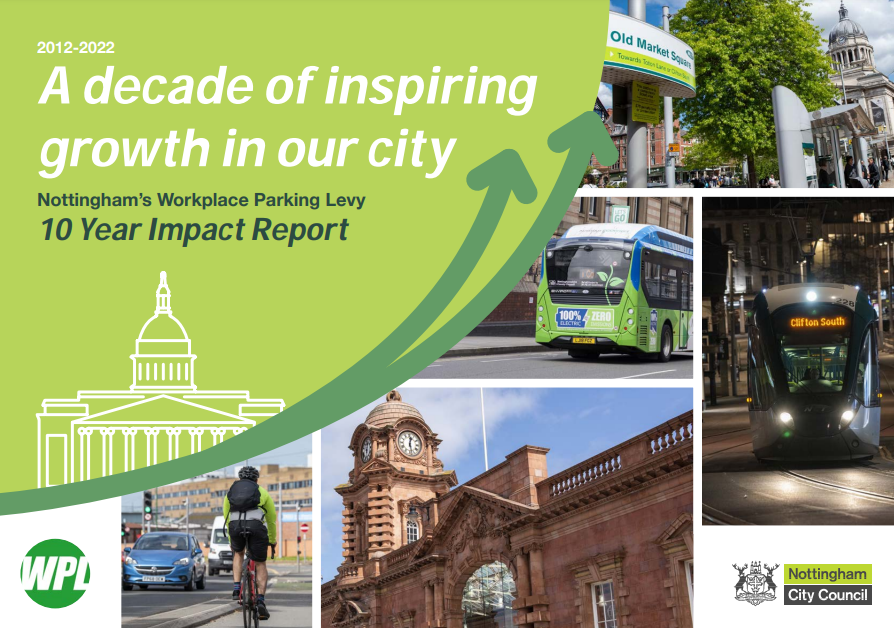The Workplace Parking Levy (WPL) - the first of its kind in Europe - has raised almost £90 million over the 10 years since its introduction. This has been re-invested into sustainable transport across the city. As a result, it is estimated that Nottingham has secured inward investment of over £1 billion in transport, including £570 million for the tram network, £120 million for low and zero emission buses and £60 million to transform Nottingham Station into a 21st century multi-modal interchange.
Supporting carbon reduction
Through significant investment from local businesses, transport providers, Nottingham City Council, central government and European funding, the council have implemented innovative solutions such as a wide range of electric vehicles, a biogas bus fleet and a zero emission vehicle lane. Together these are assessed to have reduced CO2 emissions by 58% since 2005.
Together these are assessed to have reduced CO2 emissions by 58% since 2005.

Process
All businesses with 10 or more parking spaces attached to the premises are liable to pay the levy. The availability of the address gazetteer gives the WPL team a greater understanding of the parking spaces that are available, used and not registered.
Information system
The WPL team have an in house developed licensing system with a front end for customers to use, so they can obtain varying licences and manage them throughout the year, it has a financial element to it, it also has the relevant communication channels etc. The back end is all the compliance information regime, every phone call made, every meeting had, every invoice chased, and every site visited.
The licensing system involves issuing an employer with a unique WPL ID (which is unique to that employer, not the individual). The employer goes through a process to establish whether they need a licence and under what circumstances.
Once this is completed, they can obtain their WPL ID. The UPRN is automatically linked to the WPL ID.
Value
The impact of not having authoritative address data is difficult to assess with certainty as there are many aspects of their operations that would be affected. After consultation with the team, it was agreed that a conservative estimate would be that the direct savings would be at least £5,000 per annum. Although a relatively small amount in cash terms, the credibility of the scheme and the relationship of the WPL team to local businesses hinges upon them being credible and knowledgeable. This is supported by the quality of address and street gazetteer s, particularly their comprehensive coverage and currency.
This case study appears alongside several other case studies in a report on a return investment analysis that was carried out with Nottingham City Council.



